The National Association for Stock Car Auto Racing, (NASCAR) is one of the best known stock car racing franchises in the world, but is it really "stock" car racing? Not a single Sprint Cup race car (with the exception of the pace car) is an actual production vehicle. Sure, Toyota might say their current stock car is a Camry, but Toyota has never made a rear-wheel-drive V8 solid axle Camry with a tube frame. Which brings up the question: how is this a stock car?
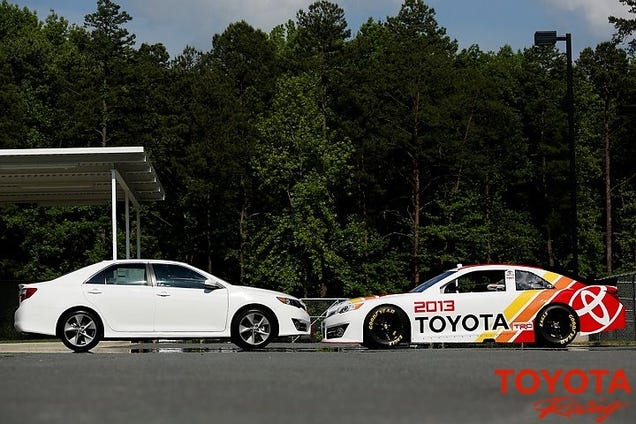
By definition a stock car is a standard model of automobile changed in various ways for racing purposes. These purpose-built racers we see in NASCAR are not in fact stock cars, they're race cars. But why are they called stock cars? Early auto racing used open wheeled race cars, built from the ground up specifically for racing circuits.
These vehicles were complex and expensive to build. As popularity grew more people wanted to enter races but couldn't due to the high cost of building a car. Open wheeled racing was seen as an aristocratic sport, one that the average man couldn't compete in. This didn't stop the people from racing though.
By the 1920s dirt tracks across the South East began hosting stock car racing events, often between Moonshiners who would race their souped up get away cars. Although modified, their cars were still based on production vehicles.
These vehicles were complex and expensive to build. As popularity grew more people wanted to enter races but couldn't due to the high cost of building a car. Open wheeled racing was seen as an aristocratic sport, one that the average man couldn't compete in. This didn't stop the people from racing though.
By the 1920s dirt tracks across the South East began hosting stock car racing events, often between Moonshiners who would race their souped up get away cars. Although modified, their cars were still based on production vehicles.
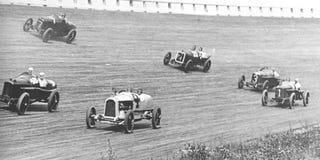
In 1948 NASCAR was founded as a sanctioning body for stock car races. One of the first NASCAR series was the Strictly Stock series, which was a race exclusively for late model cars, unmodified (not to say that all teams followed this rule) with the exception of crude safety equipment. This requirement to remain unmodified drove manufactures to produce faster cars.
Similar to the development of technology induced by NASA in landing on the moon, NASCAR stimulated technological growth within the automobile industry.
Manufacturer's benefited from their participation not only by having a more refined product but by the marketing strength that came with winning races. Bob Tasca, a Rhode Island Ford dealer and racing team owner coined the phrase "Race on Sunday, sell on Monday".
Similar to the development of technology induced by NASA in landing on the moon, NASCAR stimulated technological growth within the automobile industry.
Manufacturer's benefited from their participation not only by having a more refined product but by the marketing strength that came with winning races. Bob Tasca, a Rhode Island Ford dealer and racing team owner coined the phrase "Race on Sunday, sell on Monday".
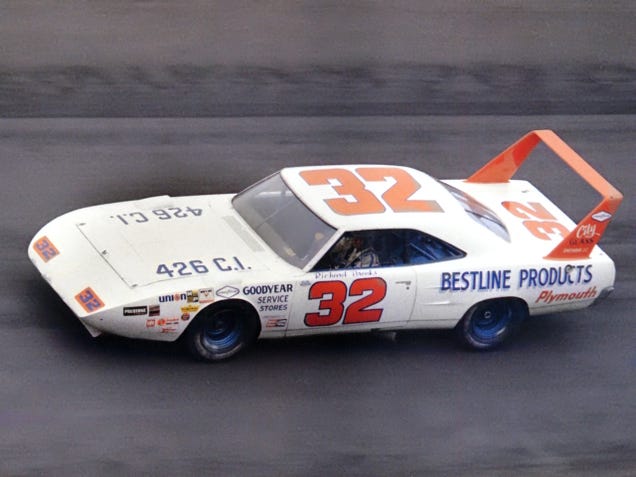
NASCAR regulation originally required manufacturers to sell at least 500 cars to be considered stock and later one for every two dealerships. Teams and manufacturers began to get more creative with how the cars were built to give mechanical advantages in races. NASCAR began it intervene banning fuel injection in 1957.
Imagine if NASCAR didn't ban fuel injection and the industry adopted it way back in 1957 instead of the 1990s. What would an extra 40 years of fuel delivery technology do to cars today? The 1969 NASCAR season saw the rise of the iconic Plymouth Superbird, an aerocar designed with aerodynamics to give better traction and cut through the air better.
Aerocars were promptly limited to a 305 cubic inch engine which was small in comparison to engines of the time which were around 400 cubic inches. Imagine aerodynamic styled cars catching on sooner than the 1980s. Imagine how much fuel could have been saved had all this technology been developed sooner.
Imagine if NASCAR didn't ban fuel injection and the industry adopted it way back in 1957 instead of the 1990s. What would an extra 40 years of fuel delivery technology do to cars today? The 1969 NASCAR season saw the rise of the iconic Plymouth Superbird, an aerocar designed with aerodynamics to give better traction and cut through the air better.
Aerocars were promptly limited to a 305 cubic inch engine which was small in comparison to engines of the time which were around 400 cubic inches. Imagine aerodynamic styled cars catching on sooner than the 1980s. Imagine how much fuel could have been saved had all this technology been developed sooner.
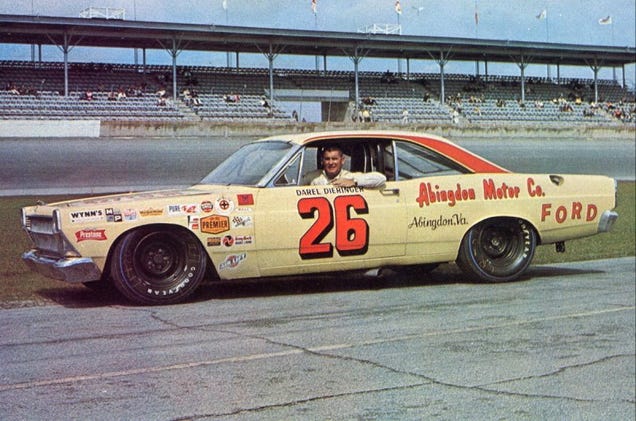
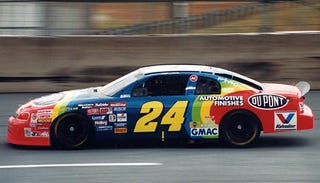
Eventually NASCAR intervened more and more, in efforts to make the race more about driving than the cars. Today the stock cars in NASCAR races only share names with their assembly line counterparts.
Regulation has gone as far that all cars, regardless of manufacturer has to have a 4 speed manual transmission, 5.8 liter naturally aspirated pushrod V8 engine and a solid rear axle.
This combination hasn't been sold in a production car since the late 1970s. NASCAR only began allowing the use of fuel injection starting in 2012. While NASCAR isn't the only franchise racing "stock cars" these days, it's one of the few who get steady manufacturer support.
Regulation has gone as far that all cars, regardless of manufacturer has to have a 4 speed manual transmission, 5.8 liter naturally aspirated pushrod V8 engine and a solid rear axle.
This combination hasn't been sold in a production car since the late 1970s. NASCAR only began allowing the use of fuel injection starting in 2012. While NASCAR isn't the only franchise racing "stock cars" these days, it's one of the few who get steady manufacturer support.
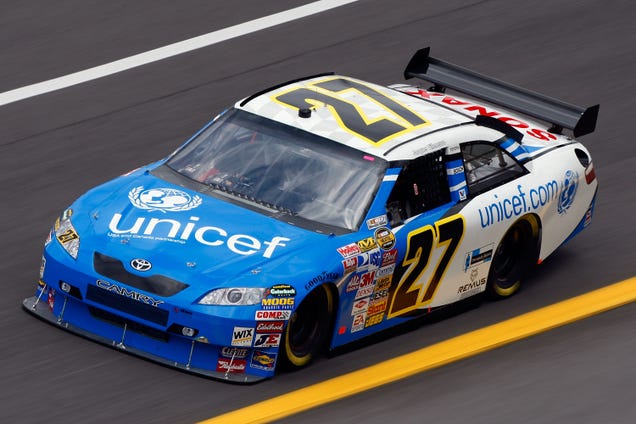
With the world oil supply dwindling we need technological development in our cars now more than ever. A new racing series that uses production vehicles could be mutually beneficial to NASCAR, manufactures, race car drivers, and car buyers. This new series could kindle the development of fuel efficient vehicles, or adapt electric vehicles to be more appealing to the mass market all while providing entertainment to the world and publicity to automobile makers.
Note: This article is the sole property of William G. Enloe High school's The Eagle's Eye. They own the writer's soul so they therefore own this article. This article is still technically a first draft and is subject to change as it is edited through normal Eagle's Eye protocol.


No comments:
Post a Comment